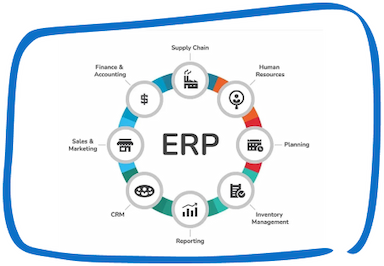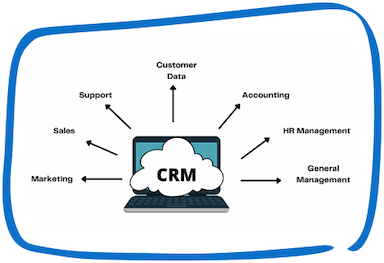What is Cyber Security?
Cyber Security is the defense against cyber threats to systems connected to the internet, including their hardware, software, and also data.
This method is used by both individuals and companies to stop unauthorized access to data centers and other digital systems.
What makes cybersecurity crucial?
The importance of cybersecurity is only going to increase as there are more people, devices, and programs in the modern company, along with an influx of more data, most of it sensitive or confidential.
Cyberattackers and attack methodologies are becoming more sophisticated and numerous, making it even more difficult to defend against them.
It’s crucial for corporate executives to keep abreast of new terminology and ideas in information security.
Cybercriminals are utilizing network flaws, complex application stacks, and inadequate monitoring as the remote business sector expands and endpoints become more dispersed.
Here are the top ten security ideas you should know about to deal with these evolving dangers.
Because the more information you have, the better equipped you’ll be to decide what security measures to take for your company.
What advantages does cybersecurity offer?
The advantages of putting cybersecurity procedures into place and sustaining them include:
- Protection for businesses from cyberattacks and data breaches.
- Network and data protection.
- Preventing access by unauthorized users.
- Quicker recovery from a breach.
- End-user and endpoint device security.
- Regulation observance.
- Company continuity
- Increased trust from stakeholders, customers, partners, developers, and also workers in the company’s reputation.
Here Are The Top 10 Terms Used in Security Operations:
Let’s discuss the Basic Concepts of Information Security
MSSP (Managed Security Service Provider) -
It is a particular type of Managed Service Provider that offers security service management, monitoring, and upkeep on a 24/7 basis, often for a fixed monthly fee.
Additionally, Monitoring firewalls, endpoint detection, and other cybersecurity technologies are a few instances of this.
APT (Advanced Persistent Threat)
It refers to an intruder’s capacity to remain present in the network continually.
The aim of a hacker is normally to remain hidden within the network for as long as feasible.
They do this to purchase time to gather information about clients, employees, intellectual property, and also about financial data.
DDoS (Distributed Denial of Service)
An IP address or source floods an online service with traffic, making it unusable.
As a deterrent, hackers use DDoS to disrupt business operations until they satisfy a condition, whether it is monetary or otherwise.
IOC (Indicator of Compromise)
Any information pointing to a network intrusion.
Normally, these are found through continuing log data analysis.
Additionally, unusual outgoing traffic, geographical anomalies, traffic from mismatched ports, and aberrant privileged user activity are examples of common IOCs.
SOC (Security Operations Center)
According to Cybersecurity experts, threat and incident response procedures, and auxiliary security technologies make a security operations center.
While many smaller organizations outsource their SOC, larger corporations often have one in-house as well.
CASB (Cloud Access Security Brokers)
These are agreements on policy between users and providers of cloud services.
In addition to this authentication, single sign-on, authorization, credential mapping, device profiling, encryption, tokenization, logging, alerting, and malware detection/prevention are examples of enforcement techniques frequently mentioned and extensively discussed in plans.
IAM (Identify Access Management)
Regulatory framework for the control of users’ electronic identities.
This is done in order to guarantee that each user has access at the right level for their IT infrastructure.
IR (Incident Response)
Incident response (IR) is the measures used to formulate for, detect, contain, and recover from a data breach.
What is an Incident Response Plan? An incident response plan is a document that sketches an organization’s procedures, steps, and also accountabilities of its incident response program.
This is done to lessen cybersecurity assaults, malware intrusions, and data breaches.
SIEM (Security Information and Event Management)
Security information and event management (SIEM) is a technology that aggregates and also analyzes activity from many different resources across your entire IT infrastructure.
A SIEM solution can build up your cyber security posture by giving you full, real-time visibility across your entire disrupted environment — whether on-premises, hybrid or cloud — as well as providing historical analysis.
SIEM solutions can also help you to escalate overall organizational resilience across a various array of tools and technologies.
UEBA (User and Entity Behavior Analytics)
This does an in-depth examination of user behavior to spot outliers.
This reduces noise during log sessions and aids in understanding user behavior.
Aside from these 10 concepts, there are other best practices for cybersecurity
Cyber security best practices include things like using caution when engaging in online activities, according to organizational standards and seeking help if you see something unusual.
An in-depth examination of the cybersecurity best practices for businesses that each employee should be aware of and follow are given below.
Defend your data
You probably avoid disclosing personal information like your Social Security number or credit card number when replying to an unwelcome email, phone call, text message, or instant message.
It’s important to exercise the same caution at work. Remember that scammers can create websites and email accounts that look legitimate.
Con artists are capable of forging caller ID data.
Hackers can even take control of business social media accounts, posting messages that appear to be from the organization.
Although it may seem obvious, it is crucial to protect the data, sensitive information, and intellectual property of your business.
Sharing a picture with a computer screen or whiteboard in the background could give away confidential information to someone who is not an organization employee.
Be cautious of the intellectual property of other businesses in the same manner.
Even if you unintentionally disclose or use the intellectual property or trade secrets of another company, you and your business could run into trouble.
You can do a lot to protect your employees, clients, and corporate data by developing and distributing company policies on subjects including how to properly dispose of outdated data and how to report suspicious emails or ransomware.
Safe Wifi
The wireless networks in offices must constantly be secured, encrypted, and untraceable.
You can utilize a virtual private network provided by your company to keep your data secure when working from home.
A virtual private network (VPN) is essential when working from home or while traveling for business. Using a public Wi-Fi network puts your data in danger of being hacked.
Keep in mind that certain VPNs are more secure than others. If your firm has a VPN, make sure you understand how to use it and connect to it.
If you use public WiFi, you can protect your personal information by using Secure VPN software.
Invest in Security Systems:
For smaller organizations, purchasing a high-quality security system can be prohibitively expensive.
This includes safeguards like antivirus and malware detection software, external hard drives for data backup, and regular system scans.
Employees and businesses may save money and time by investing now rather than waiting until something goes wrong.
Every device you use, both personally and professionally, should have security software installed.
Despite the value of safeguarding your company’s data, if you see anything suspicious you should get in touch with your IT department or information security manager.
The business could need to repair or fix the system if it has an issue. A problem should be notified as soon as possible.
In Dubai, Peniel Technology is a top provider of IT support and also a provider of Cybersecurity systems & services.
Additionally, we offer the top IT solution and services required to keep your business running properly.
Our IT Products & services include
- Anti-Virus.
- Firewall Setup &Configuration.
- VPN Setup & Configuration
- Remote Access Setup
- Laptop repairing.
- MS Office Products.
- Printer & Cartridge refilling.
- Hardware & AMCs.
- Training & Supports
- IP Phones
- Barcode System & Thermal Printers etc.
Speak with Our Team!
4.9 Stars
1k+ reviews on






